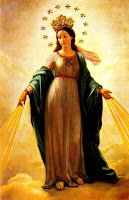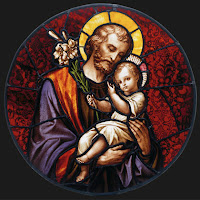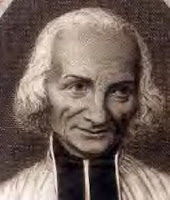Praised be Jesus, Mary, and Joseph!
3 figures were at the spotlight this week: Lady Gaga, Jessica
Sanchez, and Chief Justice Corona. I won’t go into the joke about them because
I suppose you heard of it already. Let us talk about Lady Gaga whose 2 night
concert in Pasay City was highly successful and was also very controversial.
First, the concert was banned by the Indonesian government who judged it as
dangerous to morals of society (good for them). The concert met protests from a
small Christian group which, unfortunately, was immediately tagged as
“conservative.” This “conservative” tag is unfortunate because the world today
has a bias against “conservatives” and regards them as narrow-minded, bigots,
or at least, intolerant of differences. Live and let live – we are told. The
issue here is “differences”. Lady Gaga simply sings, dresses, and acts
differently and so we have to respect this, so we are told.
Is there a pronounced difference concerned? The answer is
definitely “yes”. But the difference is not between Lady Gaga and the world we live
in because apparently, she is the best spokesperson of the world. The
difference is between those who live in the flesh and those who live in the
Spirit. “Live by the Spirit and you will certainly not gratify the desire of
the flesh. For the flesh has desires against the Spirit, and the Spirit against
the flesh; these are opposed to each other, so that you may not do what you
want.” Lady Gaga’s philosophy is a very obvious way of thinking in the flesh:
“Do what you want.” She said in her Manila concert: "Some people say I stand for things that
are bad. The truth is, I want the best for every single one of you. My
lifestyle is like one whole performance of liberation... for those of you who
aren't free. Take this opportunity to free yourself." St. Paul says: “The
works of the flesh are obvious: immorality, impurity, lust, idolatry, sorcery,
hatreds, rivalry, jealousy, outbursts of fury, acts of selfishness,
dissensions, factions, occasions of envy, drunkenness, orgies, and the
like…Those who do such things will not inherit the kingdom of God.” The
“difference” which is at issue is the difference between truth and lies.
Obviously, in courts of law, truth and lies cannot be appreciated as of equal
footing. The difference between truth and lie cannot be simply swept under the
rug and pretend, in the name of tolerance, that they can co-exist peacefully.
St. Paul reminds us that if we live according to the Spirit,
we must reject what belongs to the flesh: “Those who belong to Jesus have
crucified their flesh with its passions and desires. If we live in the Spirit,
we must follow the Spirit.” And this Spirit who we should follow is the Spirit
of truth: “he will guide you to all truth.” Living in truth is not doing what
the flesh dictates. Living in truth is doing the will of God. The Holy Spirit
does not speak on his own or act on his own. He says what he hears from Jesus
and does what he was sent to do. And so he is the Spirit of truth. What he says
and does comes from him who called himself as the Way, the Truth, and the Life.
It is the Holy Spirit who glorifies Jesus by
testifying to him. If we live in the Spirit, we will also glorify Jesus by
testifying that we belong to him. Our witness to him is manifested by the
fruits of the Holy Spirit in our lives: “love, joy, peace, patience, kindness,
generosity, faithfulness, gentleness, and self-control.” Let us live in the
Spirit by following the Spirit. Let us not be deceived by the world that cannot
give what the Holy Spirit gives. Let us have nothing to do with the works of
darkness. We are not simply talking here of differences in preferences. What we
speak of refers to light and darkness, good and evil, salvation and
condemnation. Let us live as children of light.
Jesus, I trust in you. O Mary
conceived without sin, pray for us who have recourse to thee!














